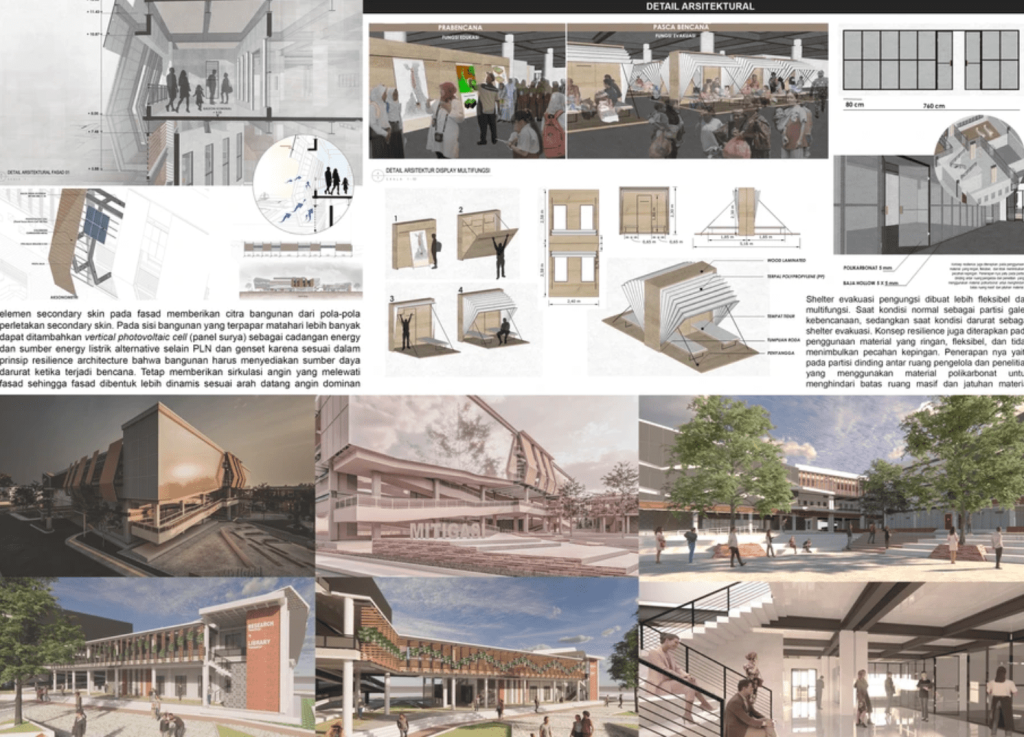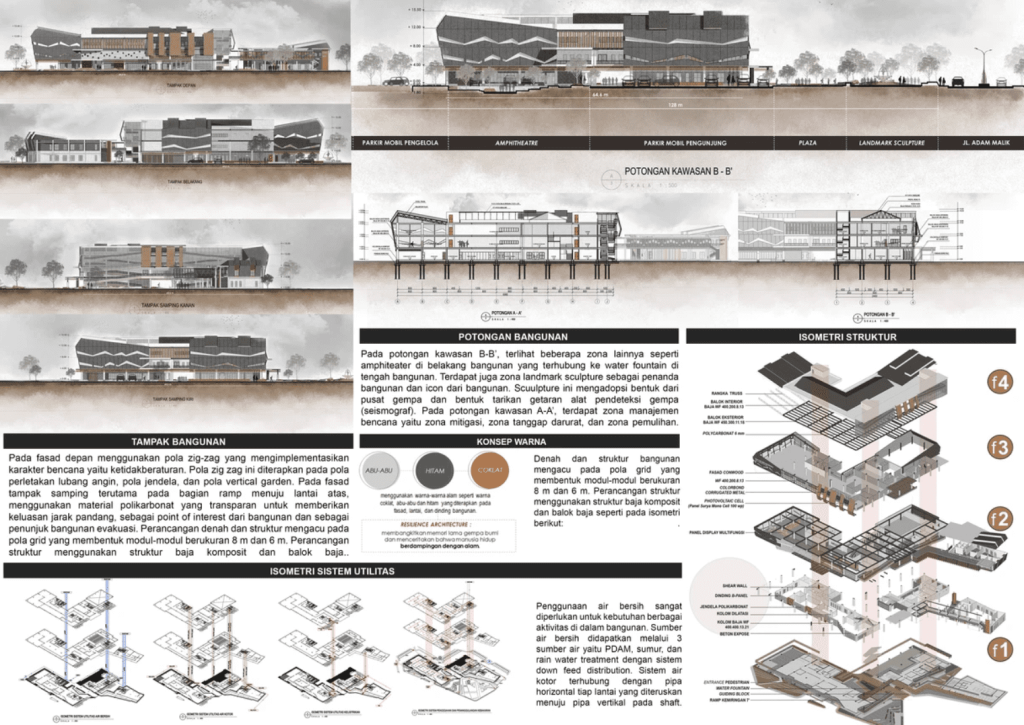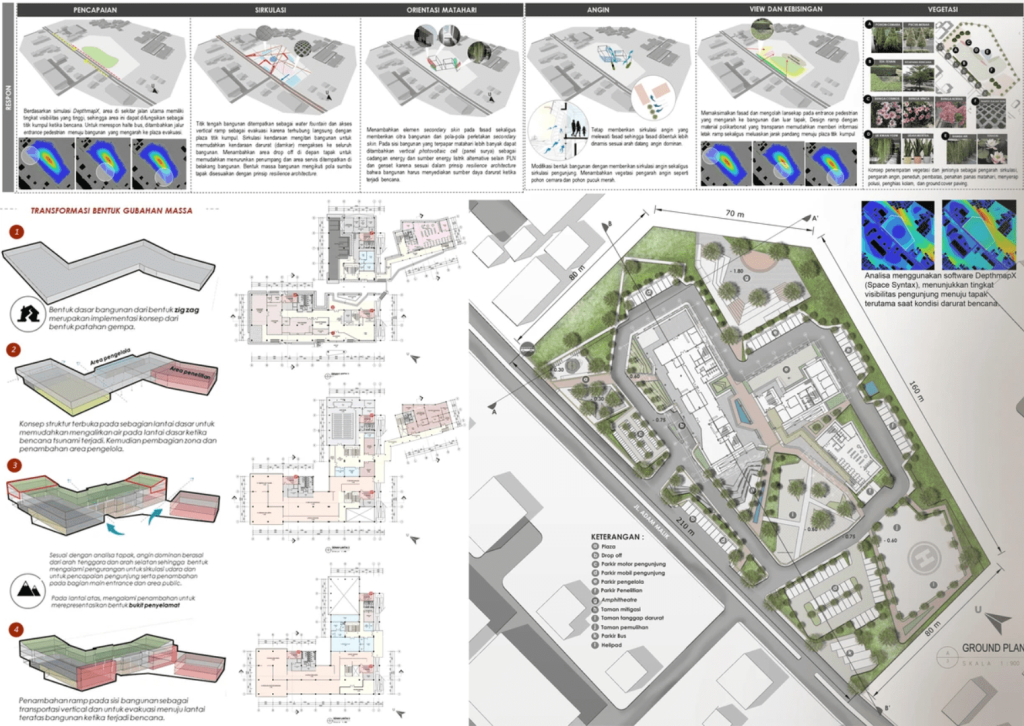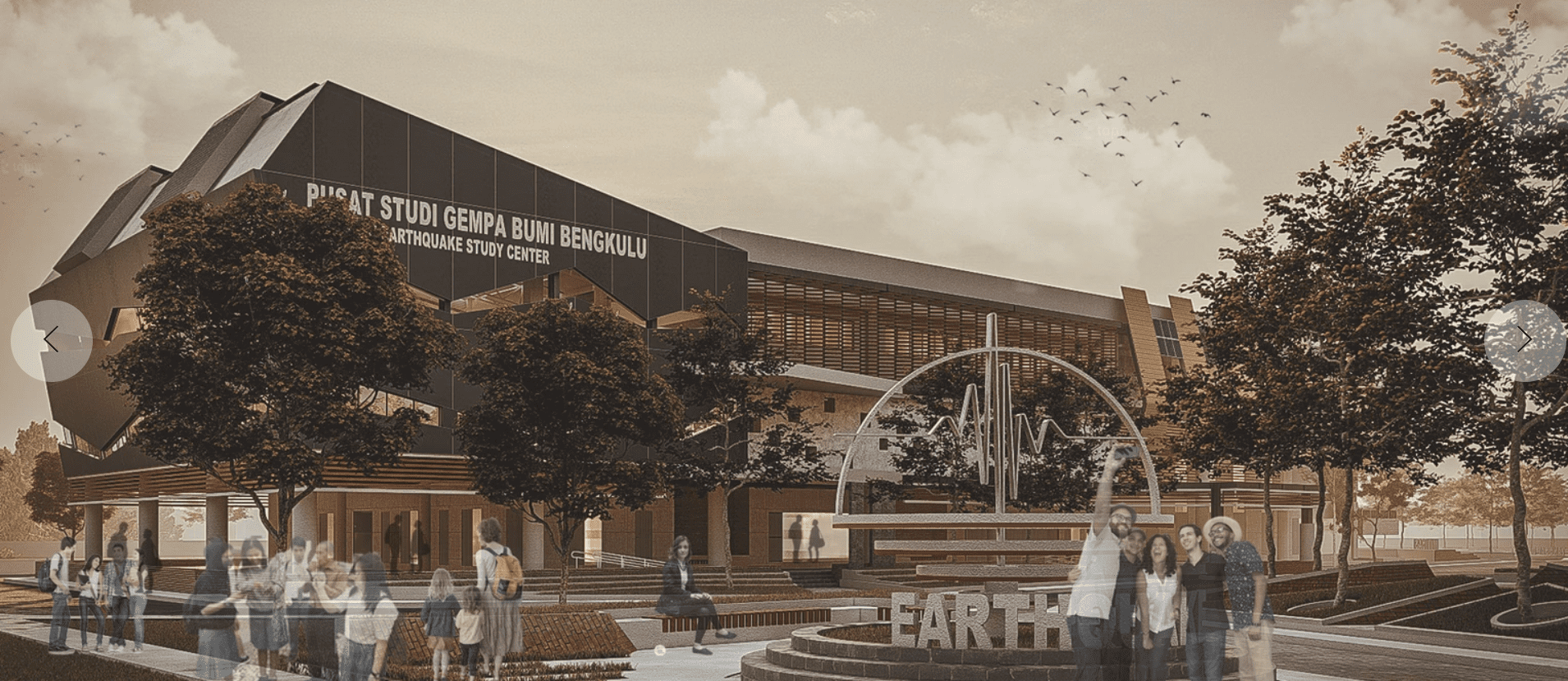
Designing An Earthquake Study Center In Bengkulu With A Resilience Architecture Approach
Design by : IFFAH KARIMAH
Bengkulu is an area with a high risk of disaster. Bengkulu was hit by a devastating earthquake in 2000 that damaged thousands of people’s homes and even caused many deaths. From this incident, it is necessary to conduct research related to seismicity and education to the community regarding disaster mitigation efforts to reduce the impact of losses and casualties. Thus, it is necessary to establish an earthquake study center in Bengkulu for education, research, and research on seismicity aimed at providing information and knowledge to the public both in theory and simulation. This study center is a multifunctional facility, namely the evacuation function in the event of a disaster, the educational function, and the recreational function.
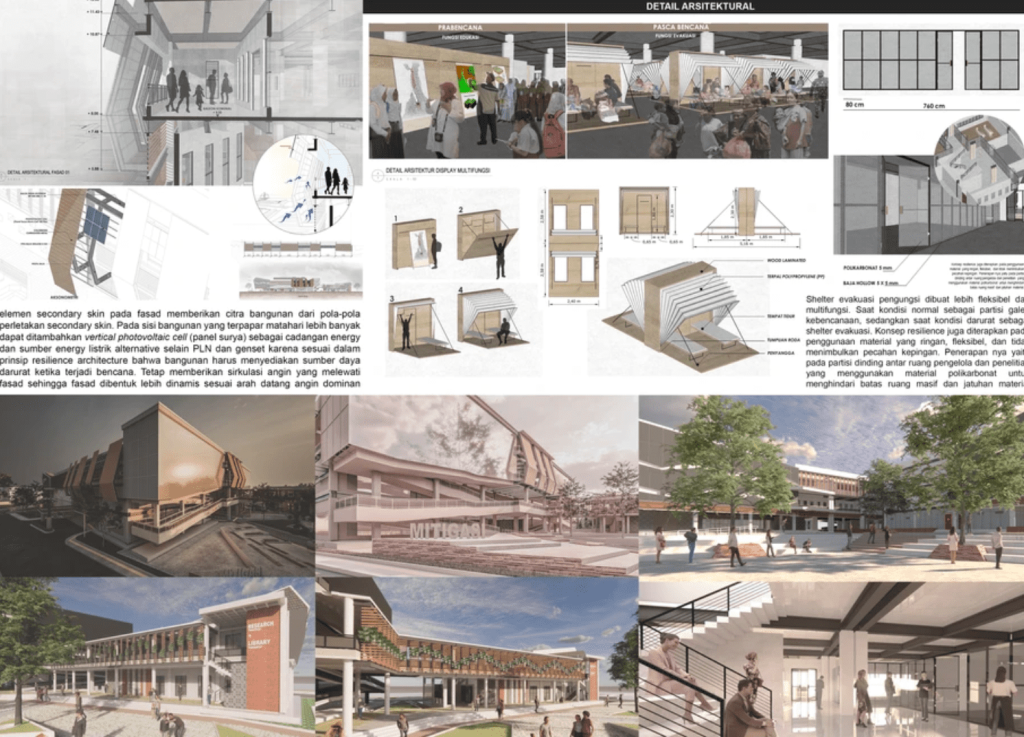
The approach used is the resilience architecture approach which is the concept of earthquake-resistant buildings and adaptive to the impact of disturbances due to natural disasters. Resilience is manifested in the application of earthquake response structures and materials, reserve energy supply, and placing gathering points. The strategic location of the site, the ease of reaching the site, and the potential of the site are the basis for consideration in determining the location of the design.
